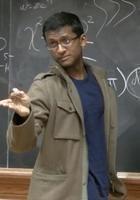Connect with hundreds of tutors like Marcus
Who needs tutoring?
FEATURED BY
TUTORS FROM
- YaleUniversity
- PrincetonUniversity
- StanfordUniversity
- CornellUniversity

Marcus
About Me
When I first entered college as a chemistry major at UC Berkeley, my interest in this subject was spurred by cool demonstrations with explosive fireball and vibrant colors. Over the past eleven years and a student and researcher, my passion for chemistry has grown and I can appreciate not only the fun aspects in the laboratory and classroom, but how chemical principles undergird all of life and nature, allowing me to see what I've learned at work around me in the world. A deep knowledge of the principles of chemistry have granted me the ability to see beauty in the world and in everyday life, from baking delicious cookies to walking through serene forest groves. Chemistry has also opened up the door to understanding biology and the workings of cells and life itself. Regardless of whether someone desires to pursue chemistry as a course of study as I have, my desire as a teacher of chemistry is to impress on everyone how even an elementary understanding of chemistry can brighten up the world around us.
Education & Certifications
Q&A with Marcus
Connect with a tutor like Marcus
Connect with a tutor like Marcus
Tutors with Similar Experience


